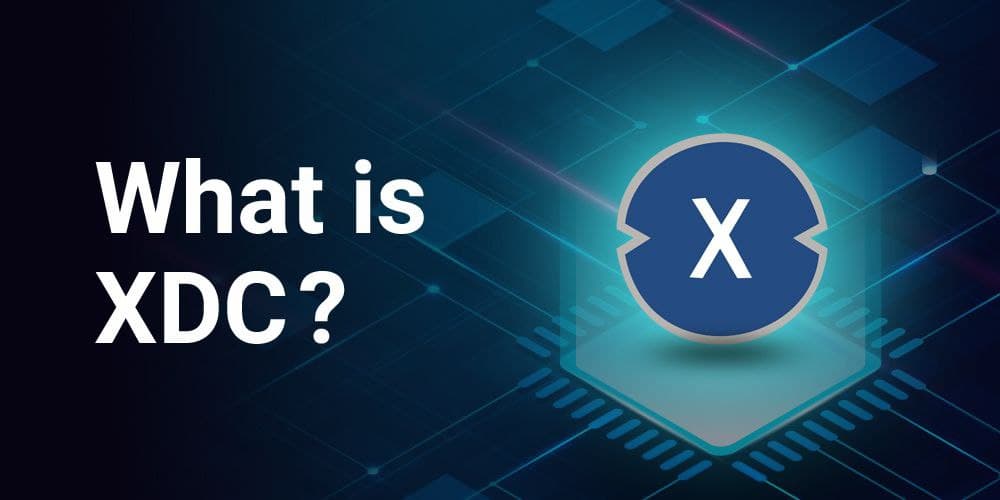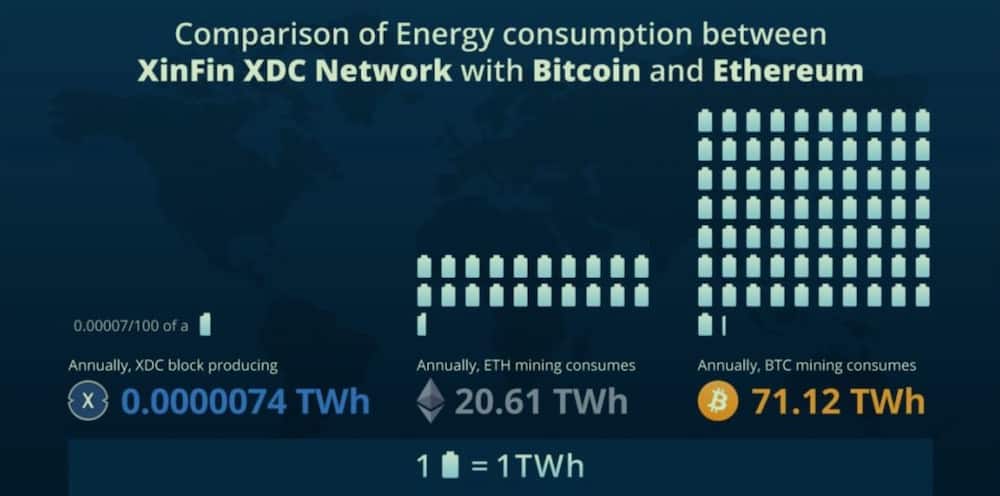
Before creating the XDC Network, XinFin co-founder, Atul Khekade, led the development of a private, 100-million-dollar, anti-fraud production blockchain network for a consortium of Indian banks and financial institutions. His fellow co-founder, Ritesh Kakkad, has two decades worth of experience running a cloud-hosting company, which garnered over 10,000 enterprise clients globally, including Fortune 500 financial institutions. Therefore, these two forward thinking entrepreneurs designed the XDC hybrid network an enterprise-ready blockchain, well positioned to appeal to institutions seeking to engage with blockchain technology
The Network Architecture Gives the Token Additional Value:
The XDC Network, created by eXchange inFinite (XinFin), is a delegated proof of stake consensus network (XDPoS), enabling hybrid relay bridges, instant block finality, and interoperability with ISO 20022 financial messaging standards. XinFin’s primary product — its hybrid blockchain protocol, which is powered by the XDC token — is an Ethereum compatible layer-1 protocol built to scale with 2000+ TPS and near zero gas fees. The XDC Network’s hybrid architecture, designed to preserve privacy (and meet stringent data security needs held by financial institutions) is a fitting solution for enterprise-level engagement with blockchain technology.
What is this Used For?
Smart Contracts within a Trade Finance Ecosystem
On XinFin’s flagship app, TradeFinex, XDC can be used as collateral for escrow smart contracts designed to fund infrastructure projects, (i.e. paving roads in developing regions, build power grids) record payment obligations, render goods and services, etc, creating a seamless financial experience without borders or barrier.
Settlement Token within Institutional Networks
In March 2021, XinFin bridged to Corda Network to become the first settlement token within the Corda Network, meaning XDC can be used as a vehicle for value exchange between Corda Network participants.
Tokenization Backed by XDC
Within the XDC Network, entities can tokenize a wide range of assets tokenize a wide range of assets, using mycontract.co Using this feature, tokenized assets can function reward points, as payment for utility bills, as representations of value within internal settlement systems, etc. By pegging the value of the tokenized asset to XDC and using the permissioned hybrid blockchain feature, institutions can ensure the privacy and security of their transactions. The underlying XDC fuel can provide a highly cost- effective solution when compared to Ethereum gas fees.
Separating Factor: Unlike, on Ethereum where all transactions are entirely public, on the XinFin XDC Network, transactions can remain within private subnetworks, with limited data sets transferred to the public chains, as to not reveal sensitive financial, medicial or identifying data.
Benefits:
Ethereum hasn’t seen widescale adoption by banks and enterprises in part because it is fully public, meaning their blockchain broadcasts sensitive data on the chain — data that institutions may want to play closer to the vest. XinFin is a smart contract blockchain solution that appeals to the privacy requirements of larger institutions with the private/public functionality.
The XinFin hybrid blockchain technology solves many issues plaguing classic blockchain systems including transaction inefficiency, prolonged block confirmation times, high energy consumption, relative anonymity of nodes are all but eliminated with the XDC Network.

Figure 1. Comparison of Energy Consumption between Bitcoin, Ethereum and XinFin XDC Network.